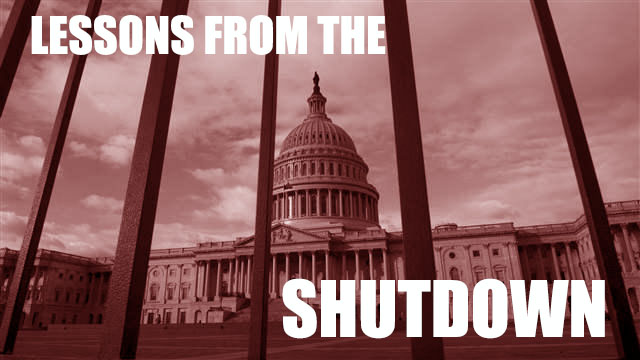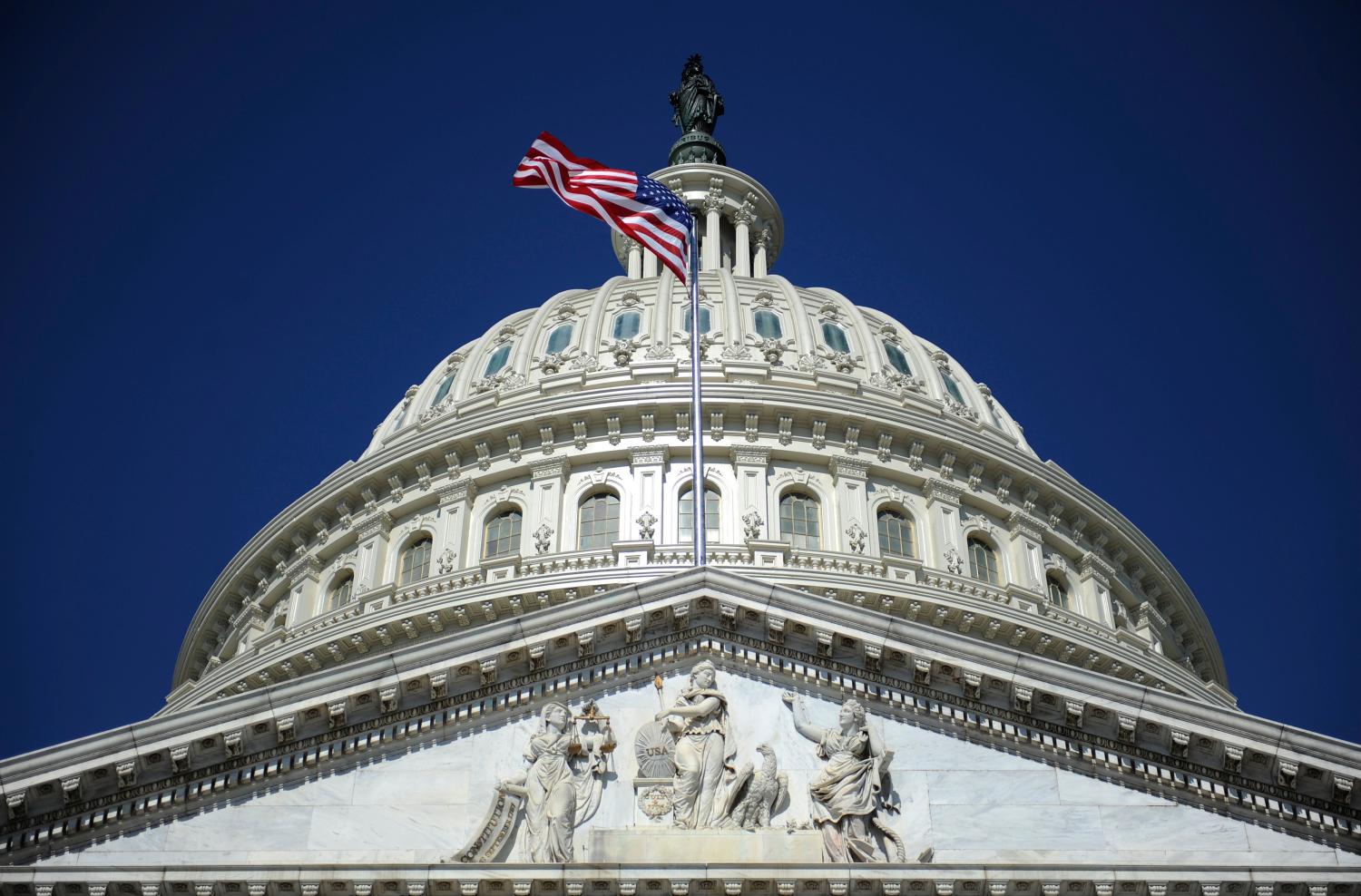Interested in what lessons are to be learned from the recent government shutdown? Today, we hosted a live Spreecast webchat to talk about our recent series on the FixGov blog. John Hudak moderated the webchat that included Molly Jackman and Philip Wallach. We invite you to watch the video from it below, and encourage you to carry on the discussion on Twitter using hashtag #FixGov.
Did Congress or the president learn anything from the shutdown and debt ceiling crises last month? They should have. To highlight the lessons that should have been learned, the
FixGov Blog featured a week-long series about Lessons from the Shutdown last week. The goal was to examine some of the unique political and policy lessons to be learned in the wake of last month’s budget crisis. Below is an overview of those posts with links to each. We encourage you to read them, share them with your friends and colleagues, and comment on them to continue the conversation.
- “Management Matters, Even for Presidents”
In the wake of the shutdown, problems with the healthcare.gov exchanges have come to light. Elaine Kamarck explains that one lesson from the experience is that president need to devote extensive time to management issues, yet few rarely do. The result is always problems that capsize a president’s agenda. - “Alternatives to the Debt Ceiling”
Phillip Wallach argues that debt ceiling brinkmanship serves all Americans badly, fiscal conservatives worst of all. He writes that we should first of all get rid of the debt ceiling and fundamentally reform our dysfunctional budgeting process, so that serious consideration of debt accumulation takes place simultaneously with spending and taxation choices. - “Debt Ceiling Costs and Consequences”
Philip Wallach discusses the many challenges posed by the debt ceiling and explains why conservatives and Republicans should prefer alternatives. In a recent National Review Online article, Wallach argues that the debt ceiling has costs and serious economic consequences, while offering few tangible benefits. - “Four Bargaining Tips Congress Should’ve Known Already”
Bill Galston offers four lessons from the shutdown, centered on the GOP’s errors in bargaining with the White House. These errors led to a period of gridlock that ended with a compromise that was easily foreseeable from the start. Galston notes that commonsense, bipartisan fixes are the real path forward in avoiding similar crises. - “Pork and Earmarks Help Break Gridlock”
John Hudak argues that bans on earmarks and the reduction of legislative pork have contributed to dysfunction in Congress. The recent shutdown and debt ceiling battles show that pork barrel politics can have a positive impact on the legislative process. Criticism of its use is often factually misinformed and short-sighted as to its benefits for governance. - “Consequences for Attacking the Federal Workforce”
The federal workforce was among the biggest victims in the recent shutdown and default fights. And that’s nothing new, notes John Hudak. Congress’ continued rhetorical attacks and poor budgeting and governance choices have serious consequences for federal workers and the function of government. - “The Farm Bill, Subsidies, & a Lack of Progress”
During the government shutdown and with a threat of debt default, all of Congress’ attention was directed toward the fiscal crisis. The cost? Other important legislation was ignored, including the Farm Bill. In this piece, Saul Jackman, Molly Jackman, and Grace Wallack offer advice to Congress on how to focus on getting back to this critical piece of agriculture policy. - “Partisanship, Uncertainty, & the Fate of the Farm Bill”
Jill Long Thompson explains that the Farm Bill has fallen prey to partisan politics and the consequences for agriculture policy are far reaching. While the House and Senate versions of the bill have some middle ground, continued uncertainty over the final product will have serious implications for policy in the short- and long-term.
Read all of these posts and others at FixGov, the Center for Effective Public Management’s new blog. Check back for frequent updates and new content, as well.
We also welcome your feedback at [email protected] or tweet at us using #FixGov.
The Brookings Institution is committed to quality, independence, and impact.
We are supported by a diverse array of funders. In line with our values and policies, each Brookings publication represents the sole views of its author(s).





Commentary
FixGov’s Lessons from the Shutdown Series: A Review
November 6, 2013